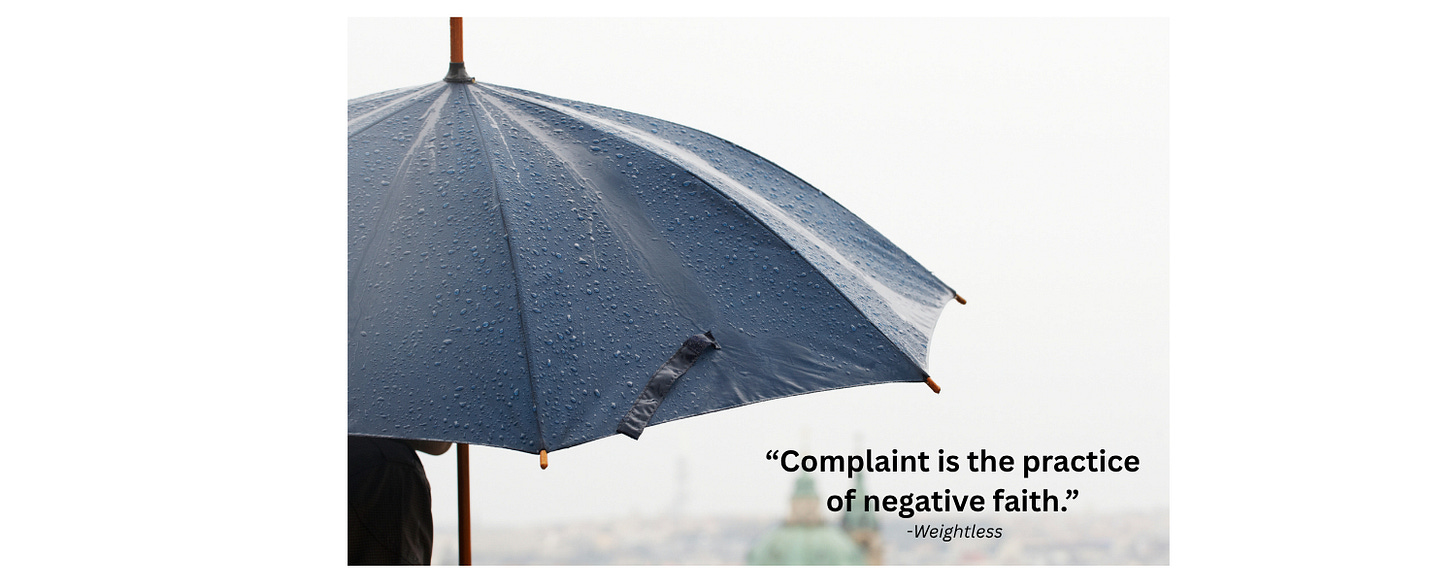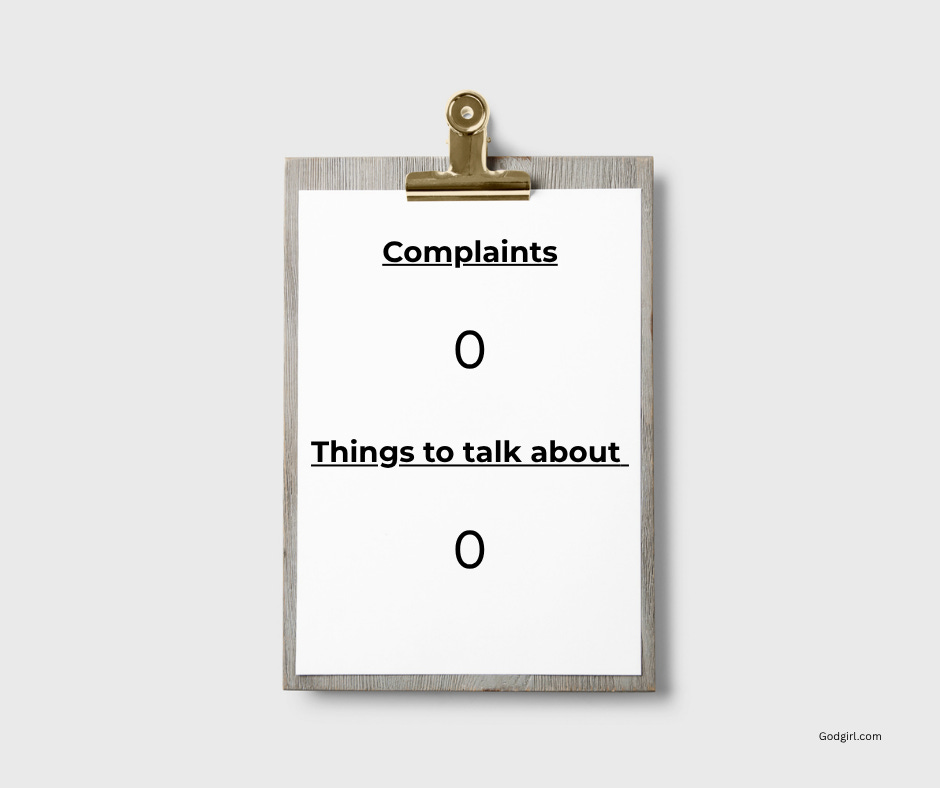Imagine Having Nothing to Complain About
would there be anything left to say?
I think Gary Chapman missed one love language:
Complaint.
Spoken by millions. Nay, billions.
There’s even a dating app where people meet over shared dislikes and fall in love while mutually hating traffic, heat, and group texts, and such, and not to brag, but I speak their language fluently. Emphasis on speak. I much prefer speaking my language to listening to it. Which is a weird way to speak a language, I’ll admit. All talky no listeny. All I wanna do is create noise, and hope others give me some sympathy in return.
I’ve always thought complaint was cathartic. A release valve. A bonding tool. But the more I start to hear it in the language of others, the more I am seeing it for what it really is: faith in the negative.

Yep, complaint is faith in the negative. Something I only figured out about myself after hearing other people complain. Embarassing!
In other words, complaint is a kind of faith, but aimed at the wrong object (my plans, my thoughts, my fears). It’s still trust, but the trust is bent downward: trusting that things are bad, unfair, meaningless, and avoidable. Instead of surrendering to God’s sovereign power, complaint surrenders to my interpretation of the situation.
That doesn’t mean every expression of pain is negative faith. The Psalms give us lament, which is radically different. Lament bends pain upward; complaint bends pain inward. Lament takes pain to God in faith, expecting Him to act. Complaint, however, keeps pain in my own hands and interprets it against God. Yikes! That stings. And I am so sorry.
When I complain, I’m not just venting frustration—I’m resisting surrendering my right to interpret the situation, and to believe. I don’t want this to be God's will, or His timing, or His method. And in so thinking, I resist letting it lead me toward Christ, and instead, let it pull me away from whatever is true, excellent, good, and praiseworthy.
And complaint doesn’t just wound the soul; it wires the brain. Complaint activates the stress system, meaning you’re getting a tasty cortisol spike while engaging your threat-detection mode. Over time, that trains your brain to expect disappointment and makes your default emotion disgust rather than joy.
Deep down, when we complain, we are resisting the surrender of our preferences—our taste, our timing, our version of how things were supposed to go. And in doing so, we close the door to the greater thing God might be doing right here: something better than ease—something eternal.

Complaint is the squatter in joy’s apartment. It doesn’t just move in quietly—it takes up space. It rearranges the furniture and makes itself at home.
It says it’s there to protect you, but it never does the job it claims, and it always leaves a mess.
What complaint delivers instead is resentment dressed up as release. And the more I complain, the less I hear joy knocking. Not because joy is fragile. But because complaint is making too much noise for joy to be heard.



